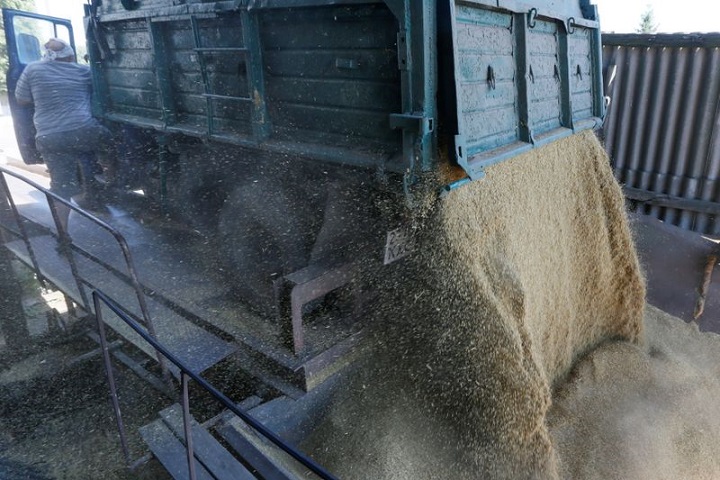Wheat falls to 10-week low as Ukraine grain deal is extended
2022.11.17 05:17
[ad_1]

© Reuters
By Geoffrey Smith
Investing.com — Wheat prices fell on Thursday after Ukraine and Turkey confirmed that the deal to safeguard exports of grain and fertilizer from Ukraine will be extended by 120 days.
By 04:45 ET (09:45 GMT), were down 2.7% at $7.95 a bushel, their lowest in two and a half months. fell 1.2% to $6.56 a bushel.
Turkey’s President Recep Tayyip Erdogan, who brokered the original deal with the assistance of the UN, announced via social media that “the agreement on the Black Sea Corridor is to be extended from November 19th by 120 days,” corroborating earlier announcements out of Kyiv.
Russia’s Foreign Ministry, meanwhile, confirmed to the news agency TASS that it “doesn’t intend to break up the deal.”
UN Secretary-General António Guterres also welcomed the deal, saying “the initiative demonstrates the importance of discreet diplomacy in finding multilateral solutions.”
The extension of the deal is a significant relief to world food markets, which have reacted badly to a war in Ukraine that has disrupted supplies from two of the world’s most important exporters. The deal has allowed Ukraine to export over 11 million tons of foodstuffs since it was agreed upon in the summer, easing a looming food crisis in some of the world’s poorest countries.
The news had been expected, but prices had still embedded a risk of the deal being abandoned after some ambivalent Russian statements in recent days, and amid ongoing jitters about the explosion of a missile on Polish territory on Tuesday, which briefly threatened an escalation of the war.
Russia had insisted on new guarantees that its exports of ammonia – a key input for nitrate fertilizers – would not be sanctioned as a precondition for extending the deal. However, it appears to have accepted an extension even without them. Reuters reported that the question of Russian ammonia exports was still under discussion. Before the war, Russia exported over 2 million tons of ammonia annually through a pipeline that runs from Togliatti on the Volga to the Ukrainian port of Odesa.
Reports suggested that Ukrainian President Volodymyr Zelensky is insisting that Russia agree to a comprehensive exchange of prisoners before giving the green light to Russian ammonia exports.
[ad_2]
Source link







